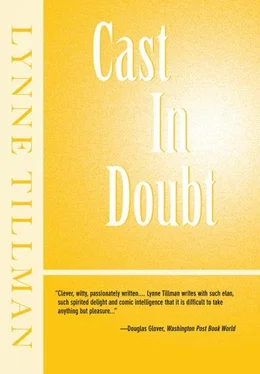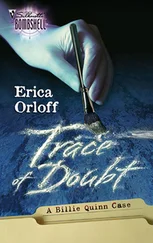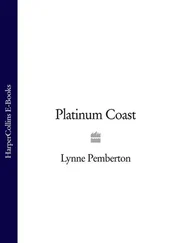Another surprise, though of a different order, was Gwen’s announcement that she might leave New York, even the States. I complained that she had no right, having teased me mercilessly about being an expatriate. Gwen took my hand and said that she would run away to Altoona, Pennsylvania, or become a Buddhist in Colorado, just get off the Great White Way. Broadway anyway. I urged her to move to Crete.
Gwen couldn’t bear it that Reagan had been elected President. I reported that Roger was over the moon about it. Not that Gwen had especially approved of the peanut farmer. She had been mildly puzzled, even somewhat disarmed, when Carter had spoken to the nation on TV, and, as she put it, had so hokily beamed himself to the American people to report on their malaise. “In French, Horace, he didn’t mean mayonnaise.” I repeated my hope that she’d move to Crete and live near me. She said she’d consider it. She has not yet decided. “You’re quaint, Lulu,” she said then. “Je t’adore.”
Later that night, spurred on by the dialogue with Gwen, it dawned on me — dawn it was: a fulgent light streaked across the sky simultaneous with this idea, this is absolutely true! — that what Horace had written, which I, as his namesake, often quoted, was correct. That I may have figuratively lived it — even literalized it — was perhaps, I decided, not such a terrible matter. It depended upon how one thought about such things. “With the change of names, the story is told about you.” A more modern translation of the Latin goes: “Change the name and you are the subject of the story.” Undoubtedly I had absorbed Horace’s words and allowed them to penetrate, to suffuse my mind and body, to subsume and consume me. I enjoyed that interpretation better than most of the others I dallied with. The break in my thinking, which I experienced and thought had occurred when I acknowledged, for one thing, that I was not always in control of the story, as I had imagined, probably flowed from this literary, this metaphorical, if not metaphysical, transformation. (At another dinner Gwen kidded me mercilessly about Roman, once I had surrendered that tale to her. Roman’s nonappearance was all she needed for one of her transformations. She galloped on about Roman, the novel, never returning, the novel’s death, the end of authors, readers, reading, and so on.)
One might well ask: Did Helen truly exist? Was there a Helen? And were I asked, I might answer: She existed for me. Or, there was a Helen for me. And she was not insipid at all.
I returned to Crete, sanguine that Gwen was all right, or all right enough. Ultimately she admitted that she had wanted me to visit her, but she had not wanted to ask me. I was immensely moved by this, since Gwen is someone who cannot ever make emotional demands. Yet I was able to meet one, one that had been implicit and unspoken. I felt I was not a bad sort after all. Some could and might see me as a thief and a liar. Helen had called me a liar. And it is true, I have lied. I can admit it now. But I’d rather put it differently: I’d rather it be said of me that Horace embellished truths only to make them shine more brilliantly!
It was in the aftermath of my visit with Gwen, and in this spirit, that I was able to look again at this journal. Also I was able to reread Helen’s diary. I did so last night, and it struck me differently. I have not looked at it, as I may have said, in years. This time I see more in it, or rather, different things in it, other meanings, which I will not bother to set out. I think I do see more because I am no longer, as Gwen explained, desperately looking for my name. I am taken particularly with Helen’s inclusion of Aesop’s fable about the jackdaw and the eagle. I recognize myself as one who thought he was an eagle. I ought to have known my limits. But how does one? Know thyself may be the question, not the answer. There may be a bit of truth in that.
It is curious. I am able to return to this journal, but I am no longer as certain of its meaning, to me, as I once might have been. I am not like Odysseus; this is not “the story of a man who was never at a loss.” I have been. I am rather insecure about what I have written — I am not sure what I mean or, worse, if it means anything at all. This fills me with horror. But I borrow from and follow Jean Genet: “To escape horror, bury yourself in it.”
Dear Reader, if I may call you that, if you and I are at all alike, if we share even a few traits, if you are even a little the way I was for the majority of my life, you may want to look back over this book, to exact from it a logic, to discern a plan. I am not saying there isn’t one. By now you know I am somewhat cagey. Gwen sometimes calls me KGB. I myself have often finished a book and gone back over it, checking the news items, for instance, to assure myself of the time and order of the developments. I have been wary, dubious that the writer had tied up all the loose ends. You may want to do that. I encourage you to do so if you wish. But I can tell you that it will explain little. Perhaps nothing. In any case, you will not find yourself here.
And here is where I will leave you. As Stan Green would have it: This is it, the big nothing. I’m leaving you with the big nothing. (In the intervening years I have written two more crime books, one titled The Big Nothing .)
Someone once said of Gertrude Stein, “It was not what she gave you, but what she didn’t take away.” One cannot give anyone anything. This is what I have learned. And while I do not leave you with anything, I do not take from you, either. If I have, I hope it is not an ordinary theft. This is what I have to offer. It is my gift, my only gift, to you. How I wish it were more!
In any case. I am working again on Household Gods, which now opens: After all these years I can still remember…I could not resist that temptation. At seventy, the only things one ought to resist are tat and salt. I have decided to cast Gwen in Household Gods; indeed, she will have a rather major role to play. I have also decided to return Helen’s diary to her. I will think of a way to do it that will not incriminate me, and that will in some way please her. Someday I will find her and I will give it to her.
Now I will dress and walk to the market. It is a glorious day.
※
I’d like to thank C. Carr for encouraging me to do a book set in New York; Tom Keenan for our discussions, his enthusiasm and acuity; the MacDowell Colony for giving me a wonderful place to write, and all the people who contributed jokes: David Hofstra, Joe Wood, Paul Shapiro, Bob DiBellis, Eiliot Sharp, Mark Wethli, Jane Gillooly, Rick Lyon, James Welling, John Divola. Marc Ribot, Dennis Cooper, Larry Gross, Charlotte Carter, Andrea Blum, Osvaldo Golijov, Martha Wilson, Michael Smith, Dick Connette, Charles Karubian, and many others whose jokes have become mine. I’d like especially to thank Richard Kupchinsksas, Debbie Negron, and Ginette Schenk for talking with me for this project.
Lynne Tillman (New York, NY) is the author of five novels, three collections of short stories, one collection of essays and two other nonfiction books. She collaborates often with artists and writes regularly on culture, and her fiction is anthologized widely. Her novels include American Genius, A Comedy (2006), No Lease on Life (1998) which was a New York Times Notable Book of 1998 and a finalist for the National Book Critics Circle Award, Cast in Doubt (1992), Motion Sickness (1991), and Haunted Houses (1987). The Broad Picture (1997) collected Tillman’s essays, which were published in literary and art periodicals. She is the Fiction Editor at Fence Magazine, Professor and Writer-in-Residence in the Department of English at the University at Albany, and a recent recipient of a Guggenheim Fellowship.
Читать дальше












